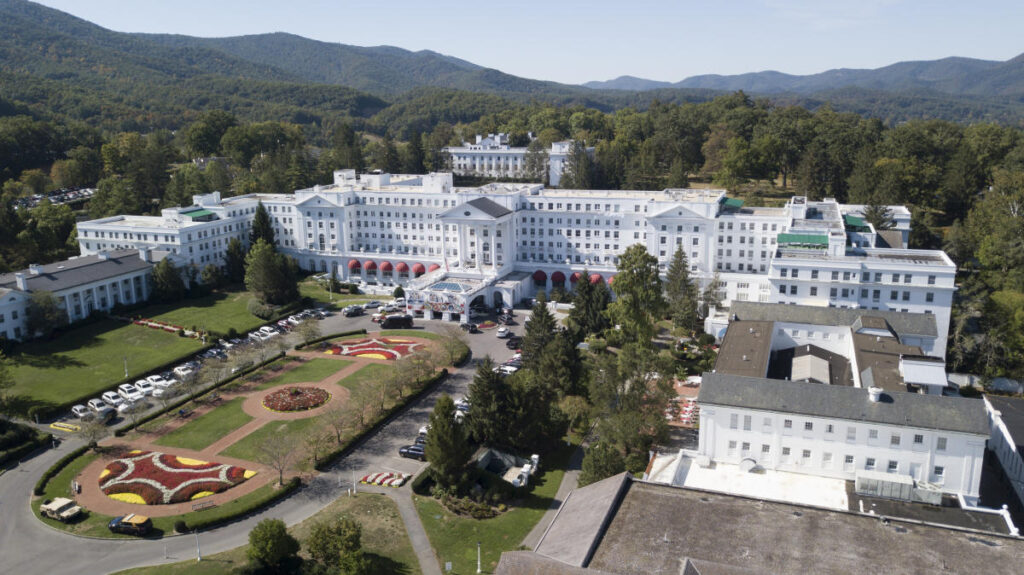The Justice family’s financial struggles have surfaced prominently as West Virginia’s Governor Jim Justice, a Republican candidate for the U.S. Senate, recently announced that they have resolved debts associated with their historic hotel, The Greenbrier. This 710-room resort, a favored destination for U.S. presidents and dignitaries alike, faced a looming auction threat after JPMorgan Chase sold a significant loan, initially taken out by Justice, to a collection agency called Beltway Capital, which subsequently declared the investment in default. This precarious situation threatened to endanger the longstanding legacy of The Greenbrier, a property cherished not only for its cultural significance but also for its employee base of approximately 2,000 individuals.
In August, the Justice family entered an agreement with Beltway Capital wherein they promised to repay the owed amount by October 2024. This arrangement led to a postponement of the auction, originally set for late August, to October 25th. The family successfully negotiated terms that allowed them to address the outstanding debts while maintaining control of their property and the jobs it provides, stating their commitment to the long-term prosperity of The Greenbrier Resort and its employees. It was a significant victory for the family, with their recent statement to the public highlighting the fulfillment of their obligations and signaling an end to the immediate financial uncertainty surrounding the hotel.
Governor Jim Justice, during a local media briefing, voiced his opinion that the financial issues involving Beltway Capital had a politically charged underpinning, asserting that the situation presented an unfair hardship upon his family. He emphasized the costly nature of the ordeal, which he deemed necessary to resolve to avert potentially severe repercussions for the workers dependent on the resort’s continued operation. By framing the financial stress as a broader issue that could adversely impact local employment, Justice highlighted both his personal and political motivations to ensure the survival of a historic establishment that supports many livelihoods in the region.
As Justice campaigns for the U.S. Senate seat left vacant by Joe Manchin, he faces competition from Democrat Glenn Elliott, the former mayor of Wheeling. Justice’s financial history is under scrutiny due to previous allegations, including a pattern of delayed payments for business debts and fines tied to unsafe conditions at his coal mines. Critics argue that his gubernatorial tenure and extensive business dealings raise questions about his financial management capabilities—an aspect that could be pivotal during his Senate run. His wealth, once estimated at $513 million, may put him in a favorable position among some voters, while also leaving him vulnerable to accusations regarding his business ethics.
The Greenbrier has a varied and colorful history, extending beyond its hotel accommodations. Originally acquired by Justice out of bankruptcy in 2009, the resort formerly hosted a PGA Tour golf tournament for nearly a decade and has provided facilities for NFL teams to conduct their training camps. Notably, the site features a subterranean bunker, designed during the Cold War to shelter Congress from potential nuclear threats, which is now open for public tours. This unique combination of hospitality, history, and recreation illustrates The Greenbrier’s multifaceted relevance and underscores its importance not only as a business venture but as a storied landmark in American history.
Ultimately, the resolution of the Justice family’s financial obligations reflects both a personal triumph for Jim Justice and a critical moment in his Senate campaign, with implications that stretch into the fabric of West Virginia’s economic landscape. The successful navigation of the hotel’s financial difficulties suggests a strategic ability on Justice’s part to manage crisis situations effectively, though it may lead to ongoing discussions about his management practices in both the public and private sectors. The outcome of his campaign could very well hinge on public perceptions of his handling of this turbulent chapter in his family’s business history and the broader impact that leadership can have on local employment and economic stability, particularly in communities that rely heavily on establishments like The Greenbrier for their livelihoods.

